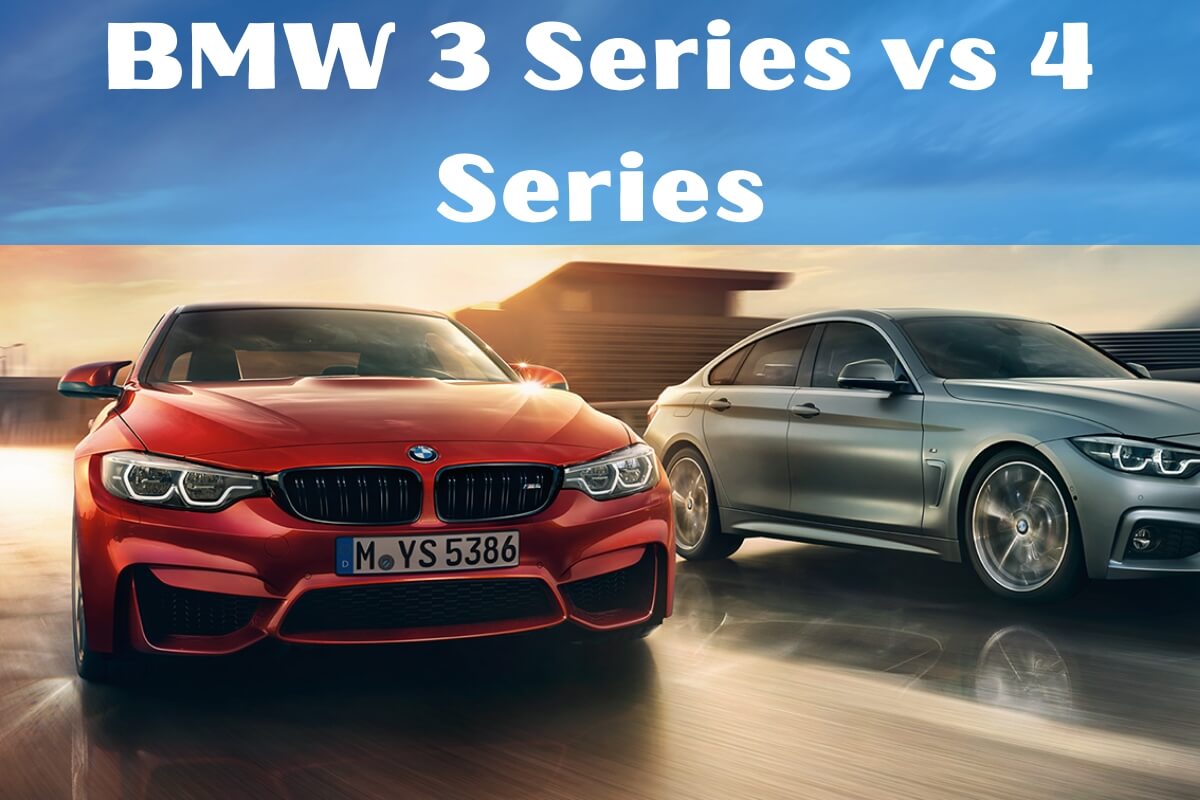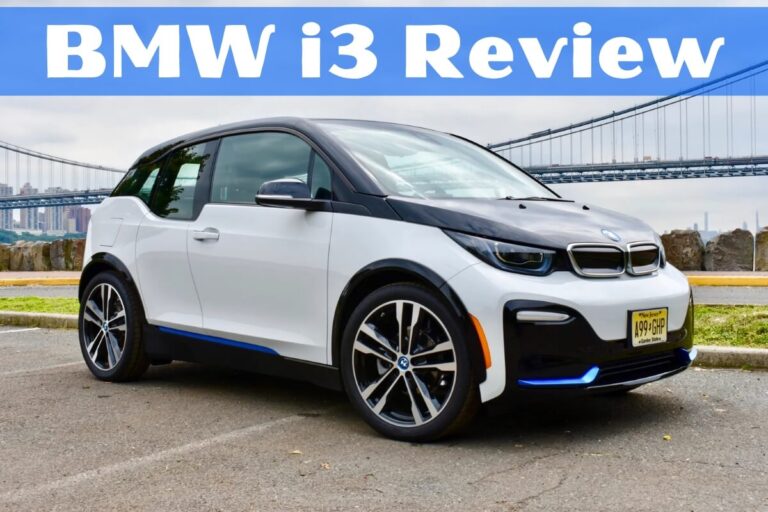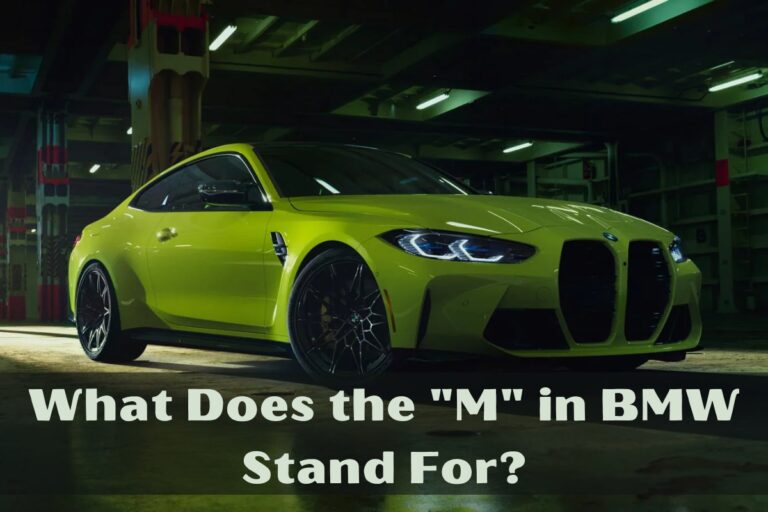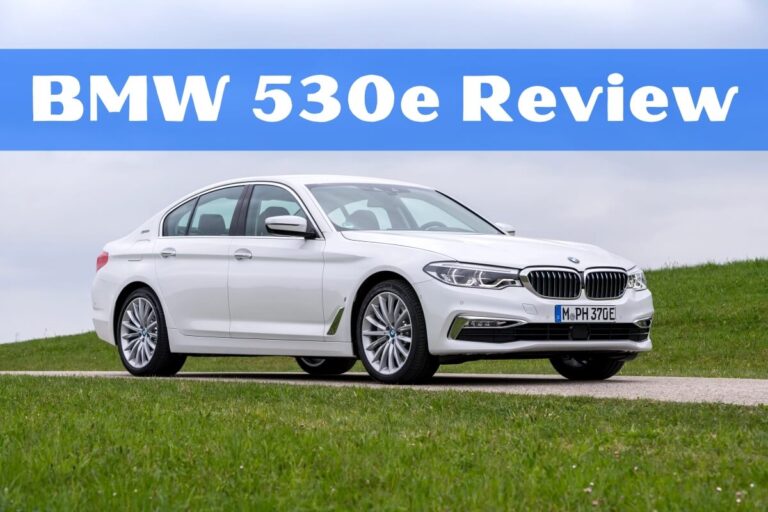BMW 3 Series vs 4 Series: The Ultimate Comparison

Body Styles and Design
The BMW 3 Series is available in traditional sedan and wagon (called Touring) body styles, making it a versatile choice for those seeking a balance of performance and practicality. On the other hand, the 4 Series lineup offers a more stylish and sporty range of body styles, including a sleek two-door coupe, a luxurious convertible, and a practical yet stylish four-door Gran Coupe.
When it comes to exterior dimensions, the 4 Series is generally larger than the 3 Series. For example, the 4 Series Coupe measures 187.9 inches in length, 72.9 inches in width, and 54.6 inches in height, while the 3 Series Sedan is slightly smaller at 185.7 inches long, 71.9 inches wide, and 56.8 inches tall.
The design language of the two models also differs significantly. The 4 Series sports a more aggressive and modern look, with a prominent and distinct front kidney grille design, a lower roofline, and frameless door windows that contribute to its sporty and aerodynamic appearance. In contrast, the 3 Series maintains a more traditional and understated design, with a smaller and horizontal kidney grille, a more upright stance, and a classic BMW profile.
Interior Space and Comfort
While the 4 Series may have a larger exterior footprint, the 3 Series often offers more interior space and practicality, particularly in the rear seats. For instance, the 3 Series Sedan provides 35.2 inches of rear legroom, while the 4 Series Coupe offers slightly less at 33.7 inches.
However, the 4 Series makes up for this with its premium interior materials and advanced technology features. Both models boast high-quality leather upholstery, sleek dashboard designs, and cutting-edge infotainment systems. The 4 Series, being positioned as a more upscale and driver-focused model, may offer additional luxury and convenience features as standard or optional equipment.
When it comes to cargo capacity, the 3 Series Sedan and Touring models have an advantage over the 4 Series Coupe and Convertible, thanks to their larger trunk spaces and the ability to fold down the rear seats for additional storage.
Performance and Handling
Both the 3 Series and 4 Series offer a range of powerful and efficient engine options, including turbocharged four-cylinder and six-cylinder powerplants. However, the 4 Series is often regarded as the more performance-oriented model, with a focus on delivering a more dynamic and engaging driving experience.
For example, the 430i Coupe and 430i xDrive Gran Coupe are powered by a 2.0-liter TwinPower Turbo four-cylinder engine that produces 255 horsepower and 295 lb-ft of torque. On the other hand, the 3 Series 330i Sedan and 330i xDrive Sedan feature the same engine but with slightly different power outputs of 255 horsepower and 294 lb-ft of torque.
At the top of the performance spectrum, the M3 and M4 models offer truly exhilarating experiences. The M3 Competition Sedan and M4 Competition Coupe are both powered by a 3.0-liter BMW M TwinPower Turbo inline six-cylinder engine that delivers an impressive 503 horsepower and 479 lb-ft of torque.
In terms of handling, the 4 Series is designed with a more performance-oriented suspension setup, a wider track, and a lower center of gravity, making it more agile and responsive in corners compared to the more balanced and comfortable ride of the 3 Series.
Fuel Economy Ratings
Despite their performance credentials, both the 3 Series and 4 Series offer respectable fuel economy ratings, especially with their smaller engines and available xDrive all-wheel drive systems.
For example, the 2023 BMW 330i Sedan with the 2.0-liter TwinPower Turbo four-cylinder engine and rear-wheel drive is rated at 26 mpg city, 38 mpg highway, and 30 mpg combined. The 2023 BMW 430i Coupe with the same engine and rear-wheel drive achieves similar ratings of 25 mpg city, 34 mpg highway, and 28 mpg combined.
It’s worth noting that opting for the more powerful M3 and M4 models will result in lower fuel economy ratings, but this is to be expected from high-performance vehicles.
Pricing and Value
When it comes to pricing, the 4 Series models typically command a higher price tag than their 3 Series counterparts, reflecting their more upscale positioning and sportier image within BMW’s lineup.
For the 2023 model year, the MSRP for the BMW 330i Sedan starts at $41,450, while the 430i Coupe has a base price of $46,950. As you move up the trim levels and add optional features, the prices can quickly escalate.
It’s important to consider not only the initial purchase price but also the long-term cost of ownership factors, such as maintenance, insurance, and fuel costs, which can vary between the two models due to their different performance characteristics and engine options.
The M Factor (M3 vs M4)
No comparison of the BMW 3 Series and 4 Series would be complete without mentioning their ultra-high-performance M variants: the M3 and M4.
The BMW M3 is the high-performance version of the 3 Series Sedan, while the M4 is the top-of-the-line variant of the 4 Series Coupe and Convertible models. These models feature a wide range of performance upgrades, including more powerful engines, enhanced suspension systems, larger brakes, and aerodynamic body kits.
For example, the 2023 BMW M3 Competition Sedan and M4 Competition Coupe both feature a 3.0-liter BMW M TwinPower Turbo inline six-cylinder engine that produces an impressive 503 horsepower and 479 lb-ft of torque. They can accelerate from 0 to 60 mph in just 3.8 seconds when equipped with the M xDrive all-wheel-drive system.
While the M3 and M4 share many performance components, the M4 is designed to deliver a more focused and exhilarating driving experience, thanks to its lower center of gravity, wider track, and sportier suspension tuning.
The Verdict – Which One to Choose?
Choosing between the BMW 3 Series and 4 Series ultimately comes down to your specific needs, preferences, and budget.
If you prioritize practicality, interior space, and a more balanced driving experience, the 3 Series Sedan or Touring models may be the better choice. They offer ample room for passengers and cargo, while still delivering impressive performance and handling characteristics that are true to BMW’s heritage.
On the other hand, if you value a more stylish and driver-focused experience, the 4 Series lineup, with its sleek coupe, convertible, and Gran Coupe body styles, might be more appealing. The 4 Series models are designed to provide a more engaging and dynamic driving experience, with their sportier suspension tuning, lower center of gravity, and more aggressive design language.
For those seeking the ultimate in performance and exclusivity, the M3 and M4 variants offer uncompromising power and handling capabilities that will satisfy even the most discerning enthusiasts.
Ultimately, both the BMW 3 Series and 4 Series offer superb luxury, performance, and driving dynamics, but the choice between them will depend on your specific priorities and preferences.
In conclusion
the BMW 3 Series and 4 Series are two exceptional model lineups that cater to different tastes and needs. While the 3 Series offers a more practical and well-rounded driving experience, the 4 Series delivers a more stylish and performance-oriented package. Whichever you choose, you can be assured of BMW’s legendary engineering, quality, and driving pleasure.
No matter which model you ultimately decide upon, you can take comfort in knowing that both the 3 Series and 4 Series are backed by BMW’s commitment to excellence. From the meticulous attention to detail in their construction to the cutting-edge technology and safety features incorporated into every vehicle, these models epitomize the German automaker’s dedication to creating truly remarkable driving machines.
One additional factor that may sway your decision is the availability of electrified powertrains. While the 4 Series lineup currently lacks a hybrid option, the 3 Series offers the 330e, a plug-in hybrid variant that combines a turbocharged four-cylinder engine with an electric motor, delivering an impressive combination of performance and efficiency.
For those seeking an even more eco-friendly option, BMW has introduced the i4, which is essentially an all-electric version of the 4 Series Gran Coupe. This model showcases BMW’s commitment to sustainable mobility while retaining the brand’s signature driving dynamics and luxury appointments.
Ultimately, whether you opt for the practical and well-rounded 3 Series or the more stylish and performance-oriented 4 Series, you can rest assured that you’ll be behind the wheel of a meticulously crafted vehicle that embodies the very best of what BMW has to offer. It’s a choice between two exceptional lineups, each catering to different preferences and lifestyles, but both delivering an unforgettable driving experience that truly sets them apart from the competition.






